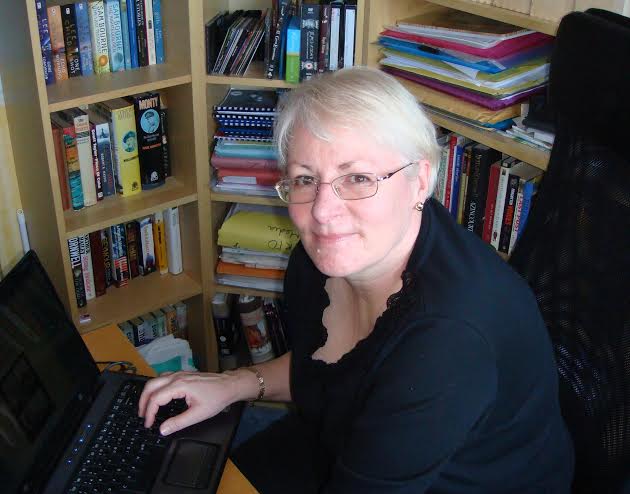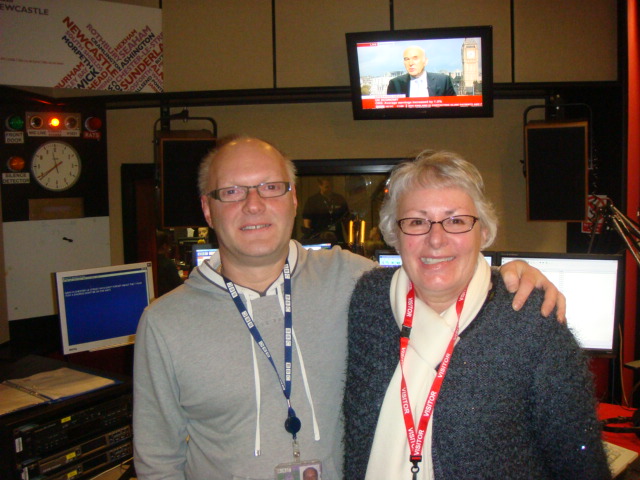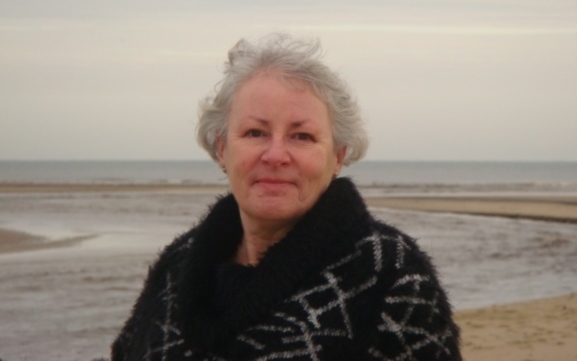I live in Northumberland. With the Cheviots Hills, Rivers Tweed, Coquet and Wansbeck and endless beaches, I have plenty of choice about where to walk and think about writing. When I won the North Tyneside Short Story Competition with ‘Spirit of the Age’ and my children’s novel ‘Toby’s Secret’ was long listed in the Times Chicken House competition in 2008, I was hooked.
Spurred on by this success, I’m now the author of three local history books ‘Crime and Punishment’, ‘Deaths Disasters & Dastardly Deeds’ and ‘Murder, Mystery & Mayhem’ and in November I was invited to BBC Radio Newcastle to chat with Jonathan Miles about my latest effort.
I often promote my writing by doing power point presentations for local history societies. One talk I did was about ‘Deaths, Disasters and Dastardly Deeds’. It was a catastrophe.
Waking at 3am with a razor blade-throat, I used an old operasingers’ trick and gargled with gin. Numbness crept over my vocal chords. I slept. Hours later I was sure someone had performed surgery with a cheese grater. I grabbed a whisky bottle and gargled. My throat was completely anaesthetised. Success.
By that evening I had a dull headache and my eyes had more bags than Louis Vuitton. It was flu, but I had promised to do the talk.
“Something’s up with the heating again,” said the perspiring IT gent as I rehearsed the presentation.
“Really?” I croaked.
The audience trooped in at 5.00 pm. Thirty minutes later I pointed the IT gent’s laser repeatedly at the screen. Nothing happened. The audience groaned. “It’ll be the USB port, we’ve had difficulties with it before,” he said as he fiddled with leads.
Should I kill him? I took a deep breath; at least he wasn’t piloting a plane. We began again. Everything worked, the audience clapped in anticipation. By 6.15 pm the talk was going really well. Emboldened by my success I started to move forwards, but couldn’t because my heel was stuck in a hole in the rostra. I was now attached to the stage. “Well,” I said wrenching myself free, “my talk is about disasters.”
Ten minutes later I was on the final furlong. My throat was raw, my head was about to explode and I was perspiring like a woman in labour. However, I was sure I’d delivered a talk which had mesmerised the audience by its sheer brilliance.
I glanced at the front row. One man’s eyelids were going down like blinds, his partner’s were closed and the woman beside him had her head on her chest. I finished quickly and thanked ‘EVERYONE’ for listening. They limped out adjusting whistling hearing aids, leaning on sticks and sucking teeth. Ah well, that’s what you get when you give a talk to octogenarians in an overheated auditorium.




